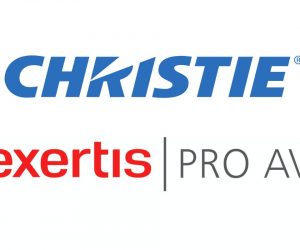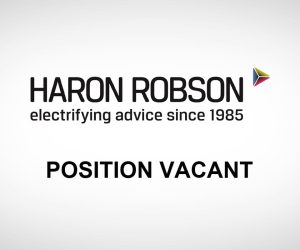
Exertis’ Australian Play
After its purchase of Just Lamps in 2016, Exertis (née Stampede) is looking to impose itself on the regional AV distribution market.


The story so far: in 2016 Stampede (a large AV distribution business with its roots in the UK) purchased Just Lamps, a global specialist distribution business with an office in Australia.
Last year, Stampede made its longer term play in Australia by renaming Just Lamps and turning it into a full, finished goods AV distributorship. Next, Stampede was itself purchased by DCC Technology Group (a huge FTSE100 company) and renamed Exertis.
Exertis’s Australian business is managed by Nick Cocks (ex Hills) and based in Adelaide. We got Nick and Exertis CEO, Kevin Kelly, on the line to find out more about what they’re up to here.
AV: Tell us about the Just Lamps purchase and the strategy behind.
Kevin Kelly: It was a great opportunity to buy an active customer base. Anyone who’s in the trade buying a projector lamp is certainly in the trade buying projectors and, increasingly, flat panels. Our challenges now is working with the manufacturers in the region and local management. Sometimes we have to reintroduce ourselves, even though we have a 15- or 20-year relationship with a particular manufacturer in another region; we have to earn our stripes and we want to earn them in a way that really resembles the core DNA of our business. We like driving the spec ourselves. We like bringing together a solution and selling a solution, not necessarily just a product. Our challenge in Australia is to build a portfolio of products to be able to sell solutions. We’ve got more than 90,000 SKUs as a company, but obviously only a small portion of that in Australia today.
AV: How’s the hunt going for brands to build the portfolio?
KK: It starts with raising the flag so everyone knows the role of Exertis as a specialist, trade-only AV distributor in the marketplace. Then it’s about earning the opportunity to serve the manufacturers — it’s a one-by-one proposition. It’s not a case of bringing over a laundry list of 10 or 15 manufacturers, get someone to sign them up and start a business in a new region. That said, we’re an acquisitive company. The expectation should be, at some point in time, when it makes sense, that acquisitions would happen. But in the meantime, we’re going to organically build this business in Australia and the Asia Pacific region. Nick’s done a great job in having a lot of those vendor discussions. Without exaggeration, we’ve got tens and tens of manufacturers we’re in discussions with. But as you can imagine, the engagement process, the contract process, it goes at its own speed and it is not necessarily a straight line and it’s not on our timetable.
AV: Australians don’t generally like being sold systems when they can roll their own solutions, cherry picking ‘best of breed’ brands.
Nick Cocks: There’s certainly an element of that, while other prefer to be guided. Exertis in Australia is building a portfolio of products with run rate-style product, with some best of breed brands, but adding some fairly unique offerings as well. For example, we’ve got a private label brand called TAPit (an interactive display for kids with special needs).
AV: Exertis is resolutely an AV distribution outfit. We’ve seen IT distribution encroach on specialised AV distribution in Australia. What’s your experience of how that plays out, Kevin?
KK: We’ve seen this in other markets and they can be formidable competitors. Their approach is normally to maximise the sales of a few product lines. From my perspective I always think there’s a role for specialists, with a strong product knowledge, to have the expertise to identify and spec a solution — those are value adds that typically are not done by a website and typically are not done by a very small team focussed on just simply moving boxes.
So there’s a role for each type of competitor in the marketplace. Most of the large IT distributors are not necessarily in the market doing the heavy pre-sales work and organic pipeline work. They wait till that work’s done by people like us, and they attempt to come in and take a deal and reduce margins in the process. So we’re used to that environment and nobody is looking for an exclusive unploughed field — we look to earn our business and look to earn our reputation with every deal we do.
AV: We’re seeing consolidation in the reseller and integrator market here in Australia. From your experience is that likely to continue — is the market likely to be increasingly consolidated into fewer and fewer hands?
KK: Covid has shown us the role smaller resellers and integrators play. They’ve had to fight hard to stay in the game, while the large businesses could weather the storm by relying on their balance sheets. Big companies need big integrators, with large financial resources. But that leaves room for the smaller guys, who can make good money servicing smaller and niche clients.
Waves of consolidation occur. It happens at the manufacturer level as well. Quite frankly, it’s really good for our industry, because when people realise that you’re able to build a business and create, in essence, equity value within that business, you are more likely to attract entrepreneurs to invest in our industry versus others.
“We’re always interested in talking to like-minded distributors and gaining an understanding of their business and looking to give them a liquidity event.”
AV: What’s been your reflections on what Covid has done to commercial AV?
KK: Covid’s made crowds toxic. And that has certainly impacted almost every aspect of our industry. And if you think about crowds being toxic, I want you to think about the fundamental principle of our industry, which is to take one message — whether that’s an audio or video message — and convey it to a crowd of people. So Covid has undermined the entire premise of our industry. Are these shifts permanent? No, I think kids are going to go back to school. I think that at some point people will be flying again and they’ll need information about when the next flight is. People will go back to bars and restaurants when they reopen. I think they’ll go back to rock concerts. Our industry enables change, and understanding, and learning, and growth, and development, and excitement… and all those elements people crave right now more than anything. We may very well see the heyday of the AV industry when we come out of Covid, simply as people reinvest in the businesses and more importantly, back into that visceral feel. It’s a substantial difference between us and the IT industry, where it’s all about sharing data. Our industry generates a visceral feeling that people love and people miss.
AV: You mentioned Exertis’ history of expanding by acquisition. Should Australian distributors be looking over their shoulders or heading to Adelaide to have a beer with Nick Cocks?
KK: This is how our company was built — we’re a product of more than 250 acquisitions, globally. It’s early days for us in Australia and our transition from a 100 percent lamp company to a true, AV finished goods distributor. But at some point it will make sense. We’re always interested in talking to like-minded distributors and gaining an understanding of their business and looking to give them a liquidity event.
AV: Sounds like beer to me, Nick!















RESPONSES